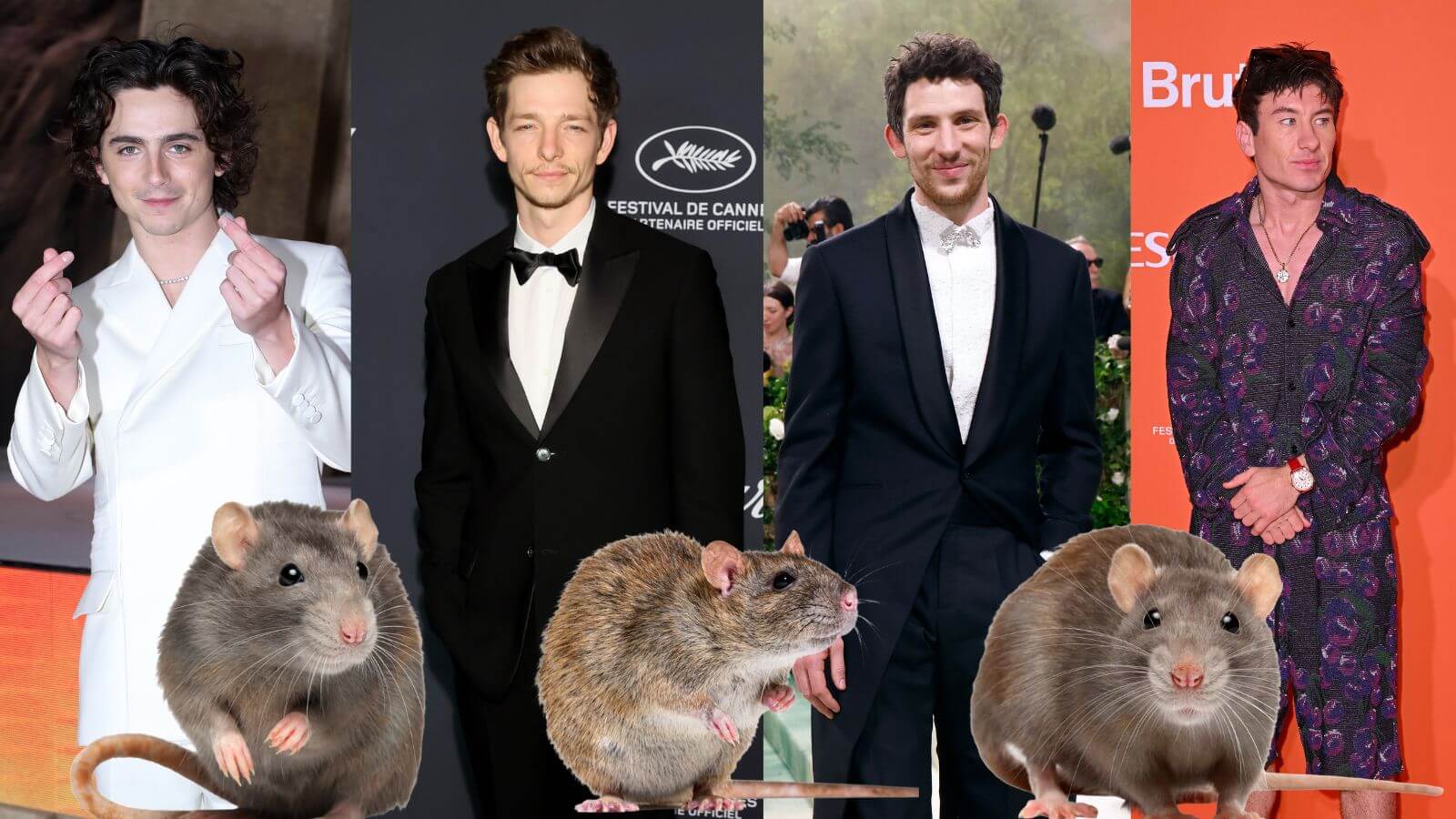Is the ‘hot rodent men’ trend uh, good for the Jews?
Antisemitic caricatures often depict Jews as rats so we’ve got some baggage around the idea

Some of the hot rodent men, with a few rodents for comparison. Courtesy of Getty Images
Beauty standards are constantly evolving. There was the heroin-chic of the 1990s and the Kim Kardashian curves of the 2010s. Dad-bods or skinny hipsters. And now we’ve found the defining look of 2024: “hot rodent men.”
That’s right. Rats are, uh, so hot right now. Hot girl summer is a thing of the past; now it’s hot rodent summer. (If you live in New York City of course, rats are in for every season.)
The rat trend grew out of an ongoing meme format comparing people’s faces to different animals. Horses, bears, eagles and dogs were the usual categories for men, while foxes, cats, deer and rabbits were for women.
But somewhere along the line, it morphed into comparing the faces of the culture’s current heartthrobs — Timothee Chalamet of Dune fame, Jeremy Allen White from The Bear, Barry Keoghan who danced naked in the iconic closing scene of Saltburn, both Mike Faist and Josh O’Connor from the sexually-charged tennis flick Challengers — to rodents. But in a good way!
Maybe they have small, beady eyes or maybe it’s their pointed chins and noses. Really, the category seems to include anyone without the square jaw of a Hemsworth. (Rodents are a large category after all; beavers are rodents.) Regardless, people are saying they look like rodents. As a compliment.
It’s weird, but also kind of refreshing to have a new beauty standard, especially in an era of fillers and veneers that make everyone end up kind of looking the same.
But also, and hear me out: This is good for the Jews.
Conventional Western male beauty standards have often emphasized a certain, well, Aryan look. Chiseled jaw. Blond hair. Broad shoulders, broad chests, tall, muscular. Meanwhile, traits stereotypically associated with other ethnicities are often considered negative.
The rat trend indicates an expanding idea of sex appeal. Indeed, many of the hot rodents are Jewish, Italian or Irish — “latecomers to whiteness,” as The New York Times’ style team put it. And a larger, less white idea of sexiness indicates a diversifying society in a way that can only help minority groups.
Let’s go back to the rat thing, though — Jews have long been associated with rodents in antisemitic caricatures, so we have some baggage here. Even Art Spiegelman in Maus depicted the Jews as mice, a reference to the antisemitic propaganda distributed by the Nazis.
But now that we’re in our sexy Ratatouille era, can you imagine those caricatures hitting hard? Picture it: Someone draws a cartoon of a Jew with a long rat nose and instead of thinking “Jews are vermin,” people interpret it as Jewish sex appeal?
OK, if I’m being honest, the rat trend will probably pass quickly, and antisemitic rat caricatures will remain antisemitic.
But there’s a long history of reclaiming slurs and insults, like the LGBTQ+ community’s adoption of the term “queer.” Even “short king spring” has had some lasting impact on judgments about men’s height. So for as long as it’s hot rodent summer, I say we embrace it.

















